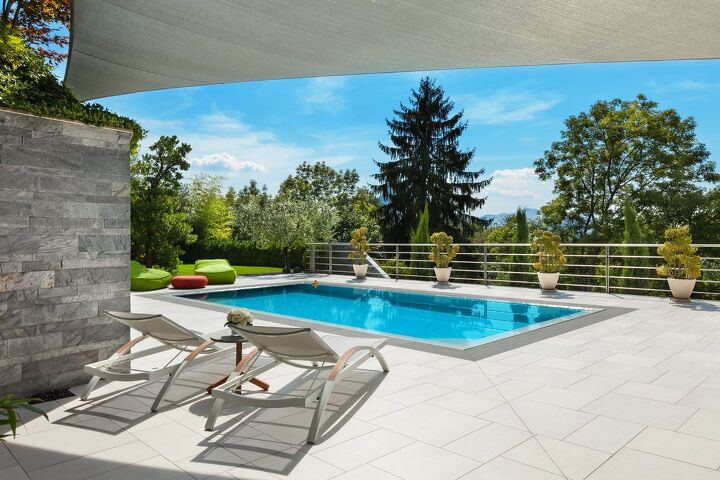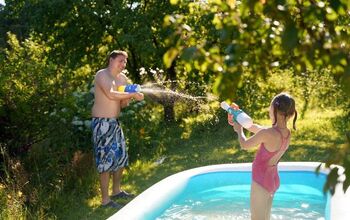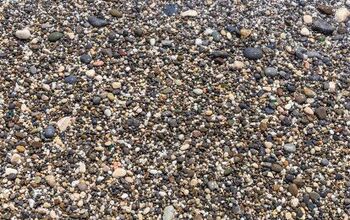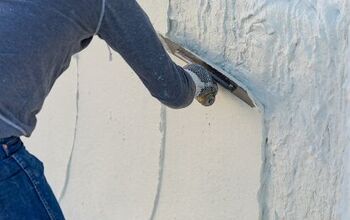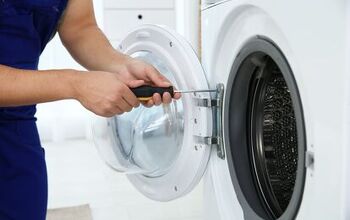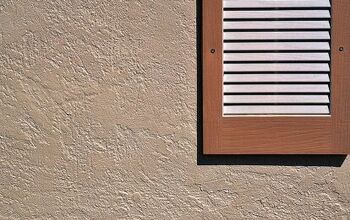Swim Spa Vs. Pool: What Are The Major Differences?

I’ll be honest. There are so many different terms that you can learn when it comes to pool talk, it kind of shocks me. (See what I did there?) When I first heard about swim spas, I assumed that they were the same things as pools. Believe it or not, they aren’t. Swim spas and pools are different, and if you’re looking into getting one, it’s good to know what you should expect.
A pool is a large, unheated body of water that is big enough to swim in comfortably. If you have a swim spa, you have a heated pool with jets that’s larger than a typical jacuzzi would be. Swim spas can be used in both the winter and summer, while pools are generally a summer-only thing.
Swim spas and pools have very similar builds, but only one is the right choice for you. (Okay, maybe if you have enough money you can do both, but still. Work with me here.) It’s time to talk about this debate.
Do You a Need Pool, Spa, or Hot Tub Contractor?
Get free, zero-commitment quotes from pro contractors near you.

Before We Begin: An Introduction To Swim Spas And Pools
Swim spas and pools both have their perks that make them worth writing home about. It’s all about understanding what each one is. So, let’s get a brief introduction to what each type of watery thingy is.
What Is A Pool?
I know this seems like it’s obvious, but we’re going to outline it just to make sure you understand what it is on an official level. A pool is a large man-made body of bathing water that is unheated, does not involve jets, and is large enough for people to swim around in. The smallest typical pool you’ll find is around 100 square feet in area.
What Is A Swim Spa?
The best way to define a swim spa is to think of it a lot like a large-size jacuzzi. It’s a hot tub that is large enough to swim in, for the most part. Swim spas tend to be large enough to do a small lap, and tend to be deeper than a typical jacuzzi. They are all heated, though they may or may not have jets.
The Pros And Cons Of Pools
Now that we’ve gotten the definitions done, let’s talk about what the perks and pitfalls are of each type of watery area. Starting off, let’s pick up with pools.
What Are The Perks Of Pools?
Pools are the all-American option that people tend to love. They’re famous for being a summer favorite, simply because the cooling water will help you chill out. Here’s why people love them:
- Pools are great for people who have larger backyards and want to give their families a way to burn calories. Lots of swimming and splashing is the norm here.
- They tend to be the best choice for people who want to have a summer-only treat. Who can resist the cold splash of a tub?
- Most homeowners find pools to be a major attraction for people in the neighborhood. Most “pool homes” tend to be the party homes on the block.
- Unlike swim spas, pools are often seen as “family-friendly.” Yes, you can invite your friends’ kids to swim there while parents chat.
What Are The Problems With Owning A Pool?
Pool ownership definitely has its drawbacks.
- Since pools tend to be larger than swim spas, you end up having to pay more for pool maintenance. This includes things like pool shock, water treatments, as well as pool filters.
- Pools are way more expensive. We’ll get into this a bit later.
- Most pools are also larger than swim spas, so you’ll need a bigger yard. The same can be said about indoor pools too.
- Moreover, most pools can only be used in the summer because of how cold the water can be. While they can be heated, most pools do not have a heat function. As a result, they tend to be used sparingly during the winter, fall, and spring seasons. Some people tend to dislike this.
The Pros And Cons Of Swim Spas
Swim spas offer an air of luxury to your home that a regular pool might not be able to. However, they’re not for everyone. Here’s what you need to know about the perks and pitfalls.
What Are The Perks Of A Swim Spa?
A swim spa tends to be seen as the more “adult” version of a pool.
- These are not really made to splash around in, but are more aligned with helping someone relax. This makes it better for people who want to have a way to relax their muscles after a day of hard work, or for people who want to de-stress from serious issues.
- Hanging out in a swim spa can have health benefits for your circulation as well as your overall body. This makes it a good choice for people who have certain ailments, such as MS.
- Swim spas can also be used year-round, primarily because they are heated 100 percent of the time. Warm dip in January? Oh, my yes.
What Are The Pitfalls Of A Swim Spa?
While I personally am a huge fan of swim spas, they’re not for everyone. Here’s why you might think twice about having one:
- Their energy bills are through the roof. It takes a lot of energy to heat a pool of water year-round. The same can be said for the amount of energy it takes to filter said spa.
- Many people view them as an adult-only area. This is a lot like how jacuzzis are seen. You know what I mean, right?
- While you can swim in a swim spa, most people don’t. I don’t know whether it’s a personal preference or if it’s just because they tend to be so small that laps don’t make sense. It’s probably both. You really can’t move as much as you could in a pool.
Which Costs More, A Pool Or A Swim Spa?
Most people would never guess it, but owning a pool is going to be about twice as expensive upfront as a typical swim spa. That, of course, is assuming that you’re going for a pool or spa of a typical size. At times, the price of a pool can be shockingly high, even if you have a smaller wadding pool or above-ground pool.
A typical in-ground pool will cost between $40,000 to $60,000 to install, with an average price tag of $51,400. Above-ground pools can be between $30,000 to $50,000. A typical swim spa installation will cost between $10,000 to $30,000 for all of the fees of installation.
An Important Note About Hidden Costs
When you’re trying to determine the cost of a pool versus a swim spa, it’s important to make sure that you look at the hidden costs. Pools also require special insurance waivers that swim spas might not. Moreover, most municipalities also require a special pool fence for homes that have pools. This can add several thousand additional dollars to your costs.
Along with worrying about the liability and safety issues, you have to keep in mind other upkeep issues that come with pools. This includes stuff like pool covers, pool filters, as well as occasional repairs to the framework of the pool. Generally speaking, swim spas are going to be lower cost.
Do You a Need Pool, Spa, or Hot Tub Contractor?
Get free, zero-commitment quotes from pro contractors near you.

Which Is Better, A Pool Or A Swim Spa?
This is not something that can be objectively determined. Pools and swim spas both have their own unique target audiences. So, it’s more about which one works for you. If you’re looking for a party area or a summer splash, a pool is the right choice. If you want a warm, relaxing option, then the spa is the better option.
Related Questions
Why is specialty insurance required for pools but not for swim spas?
Some companies will require special insurance for both of them, but the answer all has to do with injury risk. Swim spas are smaller and tend to be used by adults, which means there is less of a chance of a drowning. Pools tend to get chaotic and attract kids. So, they are more likely to see injuries.
How long is pool season supposed to be?
This can vary regionally, but for the most part, it tends to be from late spring to early fall. Most people will be able to use their pool for at least four to six months of the year. If you live in an area that’s known for warm temperatures year-round, it could be possible for your pool season to be year-round. (Lucky…)
How many people can fit in a swim pool?
This depends on the swim pool itself as well as the measurements of the swimming area. You should be able to fit at least six to 10 people in a small swim pool. It also can depend on whether you’re swimming or not. Most people in a swim pool just lounge about, so the number is higher in that sense. If you’re swimming, then a typical swim pool can only fit between one to three people at most.

Ossiana Tepfenhart is an expert writer, focusing on interior design and general home tips. Writing is her life, and it's what she does best. Her interests include art and real estate investments.
More by Ossiana Tepfenhart



